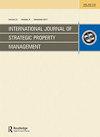杭州市社区层面居住空间分异研究
IF 1.7
4区 管理学
Q3 MANAGEMENT
International Journal of Strategic Property Management
Pub Date : 2023-03-10
DOI:10.3846/ijspm.2023.18708
引用次数: 0
摘要
居住空间分异是每个大城市都要探索的重要社会问题。城市居民主观选择形成的“亚文化”集群,分割了城市的生活空间,形成了居住的差异性。对这一现象进行研究将有助于促进城市资源的分配和制订有关的发展战略。近年来,作为中国主要发达城市之一的杭州,外地人口的比例逐渐上升。采用主成分分析和K-means聚类方法,从社区层面研究了城市居住空间的空间分异,并确定了社会集聚区。采用Shannon-Wiener指数和差异指数对各行政区域的居住隔离程度进行了评价。结果表明:杭州市各区功能差异明显,具有一定程度的等级固化。住宅分异与房价之间存在一定的空间耦合关系。更合理的社会资源配置有助于改善居住空间空间分异带来的负面影响。本文章由计算机程序翻译,如有差异,请以英文原文为准。
RESIDENTIAL SPATIAL DIFFERENTIATION AT THE COMMUNITY LEVEL IN HANGZHOU, CHINA
Residential spatial differentiation is an important social issue for every large city to explore. The “subcultural” clusters formed by the subjective choices of a city’s residents divide the living spaces of the city and create residential differentiation. A study of this phenomenon would help to facilitate the allocation of urban resources and the formulation of relevant development strategies. In recent years, Hangzhou, one of the major developed cities in China, has seen a gradual increase in the proportion of its non-local population. Employing principal component analysis and K-means clustering, this study investigated the city’s spatial differentiation of living spaces at the community level and identified the social clustering areas. The Shannon-Wiener index and the index of dissimilarity were used to examine the degree of residential segregation in each administrative district. The results showed that the functional distinctions among the districts of Hangzhou were pronounced and had certain degrees of class solidification. A certain spatial coupling was observed between residential differentiation and housing prices. More reasonable allocations of social resources would help to ameliorate the negative effects caused by the spatial differentiation of living spaces.
求助全文
通过发布文献求助,成功后即可免费获取论文全文。
去求助
来源期刊
CiteScore
4.00
自引率
18.50%
发文量
23
审稿时长
15 weeks
期刊介绍:
International Journal of Strategic Property Management is a peer-reviewed, interdisciplinary journal which publishes original research papers. The journal provides a forum for discussion and debate relating to all areas of strategic property management. Topics include, but are not limited to, the following: asset management, facilities management, property policy, budgeting and financial controls, enhancing residential property value, marketing and leasing, risk management, real estate valuation and investment, innovations in residential management, housing finance, sustainability and housing development, applications, etc.

 求助内容:
求助内容: 应助结果提醒方式:
应助结果提醒方式:


